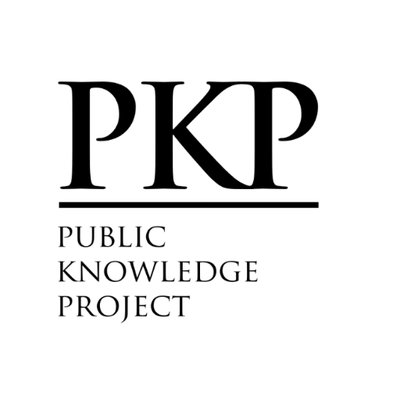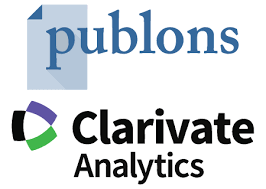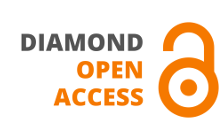Optimizing PoS agent banking for inclusive rural economies:
Criminal risks and strategic interventions
DOI:
https://doi.org/10.59051/joaf.v15i2.835Keywords:
Agent banking, criminality, financial inclusion, entrepreneurship, rural economy, South AfricaAbstract
Purpose: This paper explores the impact of Point-of-Sale (PoS) agent banking on streamlining digital and cash transactions, emphasizing its potential to alleviate financial exclusion in rural South African communities while addressing inherent challenges.
Method: An exploratory qualitative case study research methodology was employed, utilizing a participatory community-led action research approach. With proponents from the Routine Activity Theory, this study provides a comprehensive understanding of potential criminalities resonating with the model’s implementation.
Findings: In South Africa, PoS banking holds significant potential to stimulate entrepreneurship and improve livelihoods in underserved rural areas. However, the success of PoS banking is hindered by cybersecurity risks, fraud, agent credibility issues, and physical security threats like robbery. Possible interventions include strengthening agent registration, raising public awareness, enhancing digital security protocols, and bolstering regulatory and law enforcement frameworks.
Significance: The research highlights the importance of PoS banking in overcoming financial exclusion and fostering community development in Africa. It emphasizes the necessity for a multi-faceted approach to mitigate associated risks, combining better regulatory oversight, law enforcement, public education, and technological security. These measures are essential to ensure the safe and sustainable growth of PoS banking in promoting economic inclusion and resilience in vulnerable communities. Further inquiry that provides intervention measures to other forms of implementation storms is critically imperative in fostering its integration propinquity.
Downloads
References
Adeoti, O. O. (2013). Challenges to the efficient use of Point of Sale (PoS) terminals in Nigeria. African Journal of Business Management, 7(28), 2801-2806. https://doi.org/10.5897/AJBM12.1129
Afzal, M., Meraj, M., Kaur, M., & Shamim Ansari, M. (2024). How does cybersecurity awareness help in achieving digital financial inclusion in rural India under escalating cyber fraud scenario? Journal of Cyber Security Technology, 1-39.
Akande, J. O., Hosu, Y. S., Kabiti, H., Ndhleve, S., & Garidzirai, R. (2023). Financial literacy and inclusion for rural agrarian change and sustainable livelihood in the Eastern Cape, South Africa. Heliyon, 9(6), 1-12. https://doi.org/10.1016/j.heliyon.2023.e16330
Akhtar, S., Sheorey, P. A., Bhattacharya, S., & VV, A. K. (2021). Cyber security solutions for businesses in financial services: Challenges, opportunities, and the way forward. International Journal of Business Intelligence Research (IJBIR), 12(1), 82-97.
Alzamel, H. A., Alshabanah, M., & Alsmadi, M. (2019). Point of Sale (POS) Network with embedded fingerprint biometric authentication. International Journal of Scientific Research in Science and Technology (IJSRST), 6(5), 212-223. https://doi.org/10.32628/IJSRST119659
Atkins, S., & Lawson, C. (2021). Cooperation amidst competition: Cybersecurity partnership in the US financial services sector. Journal of Cybersecurity, 7(1), 1-11. https://doi.org/10.1093/cybsec/tyab024
Attoukou, M., & Nchare, K. (2022). Financial exclusion and poverty reduction in Benin. Asian Journal of Economics and Empirical Research, 9(2), 121-131.
Bello, O. A., Ogundipe, A., Mohammed, D., Adebola, F., & Alonge, O. A. (2023). AI-driven approaches for real-time fraud detection in US financial transactions: Challenges and opportunities. European Journal of Computer Science and Information Technology, 11(6), 84-102.
Berg, T., Burg, V., Gombović, A., & Puri, M. (2020). On the rise of fintechs: Credit scoring using digital footprints. The Review of Financial Studies, 33(7), 2845-2897.
Button, M., & Cross, C. (2017). Cyber frauds, scams, and their victims. Routledge.
Chitimira, H., & Magau, P. (2022). A legal conspectus of some role-players in the development of financial education in South Africa. EIRP Proceedings, 17(1), 360-375.
Cohen, L. E., & Felson, M. (1979). Social change and crime rate trends: A routine activity approach. American Sociological Review, 44(4), 588-608.
Dal Pozzolo, A., Boracchi, G., Caelen, O., Alippi, C., & Bontempi, G. (2017). Credit card fraud detection: A realistic modeling and a novel learning strategy. IEEE Transactions on Neural Networks and Learning Systems, 29(8), 3784-3797.
Devi, A. (2023). What is financial exclusion? A review. Review on Islamic Accounting, 3(2). https://doi.org/10.58968/ria.v3i2.365
Engels, C., Kumar, K., & Philip, D. (2021). Financial literacy and fraud detection. In Financial Literacy and Responsible Finance in the FinTech Era (pp. 124-146). Routledge.
Fourchard, L., & Azeez, A. K. (2023). The 2023 cashless election in Nigeria: The politics of withdrawing money. African Affairs, 1-17. https://doi.org/10.1093/afraf/adad019
Gennaioli, N., Shleifer, A., & Vishny, R. (2015). Money doctors. The Journal of Finance, 70(1), 91-114.
Hall, L., Campbell, R., Gross, E., & Lichtenberg, P. A. (2022). The impact of financial coaching on older adult victims of financial exploitation: A quasi-experimental research study. Financial Counseling and Planning: The Journal of the Association for Financial Counseling and Planning Education, 33(1), 66–78.
Holtfreter, K., Reisig, M. D., & Pratt, T. C. (2008). Low self-control, routine activities, and fraud victimization. Criminology, 46(1), 189-220.
Iwara, I. O. (2024). Catalysing financial inclusion in South Africa's rural landscape: A theoretical discourse of PoS business model. e-BANGI Journal, 21(2), 448-459. 10.17576/ebangi.2024.2102.37
Kshetri, N. (2019). Cybercrime and cybersecurity in Africa. Journal of Global Information Technology Management, 22(2), 77-81. https://doi.org/10.1080/1097198X.2019.1603527
Lestariningati, S. I. (2018, August). Mobile point of sale design and implementation. In IOP Conference Series: Materials Science and Engineering (Vol. 407, No. 1, p. 012094). IOP Publishing.
Levi, M. (2015). Money for crime and money from crime: Financing crime and laundering crime proceeds. European Journal on Criminal Policy and Research, 21(2), 275-297.
Levi, M., & Reuter, P. (2006). Money laundering. Crime and Justice, 34(1), 289-375.
Miya, Z. (2022, October 13). Overcoming financial exclusion in South Africa. TechFinancials. https://techfinancials.co.za/2022/10/13/overcoming-financial-exclusion-in-south-africa/
Mohammed, D. (2015). Cybersecurity compliance in the financial sector. Journal of Internet Banking and Commerce, 20(1), 1-11.
Mokobongo, F. J. J. Y., Mballa, N. U. C., Koyongozo, A. D., Dacko, G., & Gonessa, M. E. (2022). Financial exclusion in Central African Republic.
Mpofu, F. Y., & Mhlanga, D. (2022). Digital financial inclusion, digital financial services tax, and financial inclusion in the fourth industrial revolution era in Africa. Economies, 10(8), 1-22. https://doi.org/10.3390/economies10080184
Mtyapi, S. (2021). Investigating financial inclusion in rural households: A South African case (Doctoral dissertation, University of the Western Cape).
Náñez Alonso, S. L., Jorge-Vazquez, J., Echarte Fernández, M. Á., Kolegowicz, K., & Szymla, W. (2022). Financial exclusion in rural and urban contexts in Poland: A threat to achieving SDG eight? Land, 11(539), 1-21. https://doi.org/10.3390/ land1104053
Newman, G. R., & Clarke, R. V. (2003). Superhighway robbery (1st ed.). Willan. https://doi.org/10.4324/9781843924876
Njoku, J. (2022, March 28). The ultimate guide on how to start a PoS business in Nigeria. DockaysWorld. https://www.dockaysworld.com.ng/how-to-start-a-pos-business-in-nigeria/
Okoye, C. C., Nwankwo, E. E., Usman, F. O., Mhlongo, N. Z., Odeyemi, O., & Ike, C. U. (2024). Securing financial data storage: A review of cybersecurity challenges and solutions. International Journal of Science and Research Archive, 11(1), 1968-1983.
Olarewaju, B. (2023). How to start a PoS machine business in Nigeria. Studentship. https://studentship.com.ng/start-pos-business-in-nigeria/?expand_article=1#google_vignette
Omojola, O., Adebogun, O., & Audu, S. (2022). Financial inclusion and tax revenue in Nigeria. Research Journal of Business and Economic Management, 5(2), 32-37. https://doi.org/10.31248/RJBEM2022.084
Phelan, A., O'Donnell, D., & McCarthy, S. (2023). Financial abuse of older people by third parties in banking institutions: A qualitative exploration. Ageing & Society, 43(9), 2135-2156.
Shaw, J. M. (2018). Compliance challenges in the world of elder financial exploitation. Journal of Financial Compliance, 2(2), 155-164.
Simatele, M., & Maciko, L. (2022). Financial inclusion in rural South Africa: A qualitative approach. Journal of Risk and Financial Management, 15(376), 2-22. https://doi.org/10.3390/jrfm15090376
Somba, S. K. (2014). Real-time multi-agent-based fraud detection tool for banking institutions (Doctoral dissertation, University of Nairobi).
South African Banking Risk Information Centre (SABRIC). (2020). Annual crime statistics report. Retrieved from https://www.sabric.co.za/media-and-news/press-releases/sabric-annual-crime-stats-2020/
South African Police Service. (2023). Crime statistics report. Retrieved from https://www.saps.gov.za/services/downloads/2022-2023-Annual-Crime-Statistics-Report.pdf
Stamler, R., Marschdorf, H., & Possamai, M. (2014). Fraud prevention and detection. Routledge.
Tran, H. T. T., & Le, H. T. T. (2021). The impact of financial inclusion on poverty reduction. Asian Journal of Law and Economics, 12(1), 95-119.
Statista. (2014). Total number of POS terminals reported in South Africa from 2012 to 2022. Statista. https://www.statista.com/statistics/1316919/pos-terminal-count-in-south-africa/
Downloads
Published
How to Cite
Issue
Section
License
Copyright (c) 2025 Ishmael Obaeko IWARA

This work is licensed under a Creative Commons Attribution-NonCommercial-NoDerivatives 4.0 International License.
Authors who publish with this journal agree to the following terms:
- Authors retain copyright and grant the journal right of first publication with the work simultaneously licensed under a Creative Commons Attribution License that allows others to share the work with an acknowledgement of the work's authorship and initial publication in this journal.
- Authors are able to enter into separate, additional contractual arrangements for the non-exclusive distribution of the journal's published version of the work (e.g., post it to an institutional repository or publish it in a book), with an acknowledgement of its initial publication in this journal.
- Authors are permitted and encouraged to post their work online (e.g., in institutional repositories or on their website) prior to and during the submission process, as it can lead to productive exchanges, as well as earlier and greater citation of published work (See The Effect of Open Access).






















